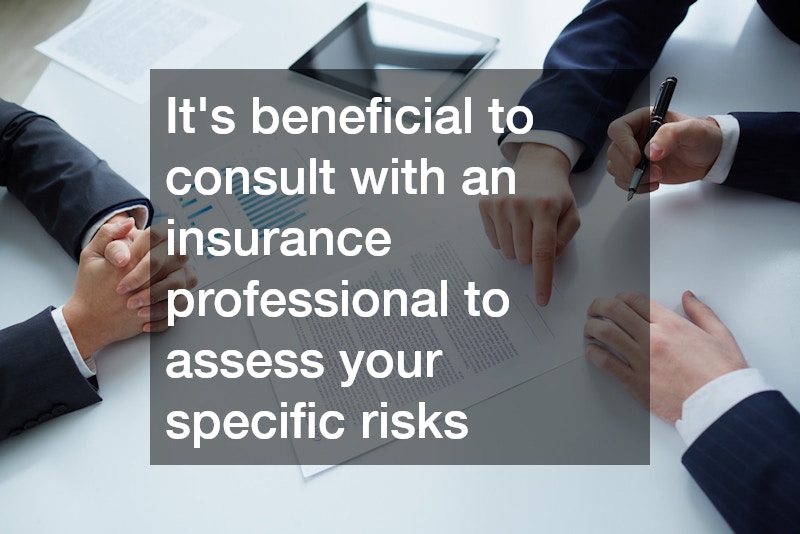There are multiple essential considerations to make when selecting the right exhibitor insurance plan, particularly for those preparing for their first market. Understanding the necessity of insurance, the types available, and the implications of not having coverage is crucial for any exhibitor.
What Types of Exhibitor Insurance Plans Are Available?
When preparing for your first market, it’s essential to familiarize yourself with the various types of exhibitor insurance available. Common types include general liability insurance, which protects against third-party claims for bodily injury or property damage.
Additionally, property insurance may cover any accidental loss or damage to your exhibition equipment and materials during the event.
Another important type of insurance is product liability insurance. This coverage is particularly vital if you are selling products, as it protects against claims arising from product defects or harm caused by your products. There are also event cancellation insurance plans that safeguard your investment should unforeseen circumstances arise, requiring the show to be canceled.
Lastly, you might consider specific coverage options for your business type, such as professional liability insurance for service-based businesses. Overall, understanding the spectrum of available insurance plans will enable you to make informed decisions based on your specific needs as an exhibitor.
How Much Coverage Do You Need as an Exhibitor?
Determining the right amount of coverage you need as an exhibitor depends on several factors, including the nature of your products and the size of your exhibition. Generally, the more significant your investment in your booth and materials, the higher your required coverage should be. Evaluating your potential risks, such as the value of items being displayed or sold, will help you in calculating adequate coverage.
The venue where you’ll be exhibiting is another factor to consider, as some locations may have their own insurance requirements that influence how much coverage you will need to secure. Furthermore, if you’re taking part in a large event, the increased attendee volume may require a higher general liability limit to adequately protect your interests.
It’s beneficial to consult with an insurance professional to assess your specific risks and help devise a coverage amount that balances protection with cost, ensuring that you are not underinsured or overpaying for unnecessary coverage.
What Are the Risks of Not Having Exhibitor Insurance?
Operating without exhibitor insurance poses significant risks that can jeopardize your business. One of the primary dangers is the financial burden of any unforeseen incidents that may occur during the market, including accidents involving visitors or damage to your property. The costs associated with legal claims or damages can be substantial, often exceeding what a small business can afford.
The absence of insurance can also harm your business reputation. If an incident occurs that results in accusations of negligence or liability, it could lead to negative publicity and loss of client trust. Maintaining a solid brand image is crucial for any exhibitor, and having insurance reassures customers that you are a responsible operator.
Moreover, without coverage, you might find yourself liable for inventory losses or damages incurred during the exhibition. This also includes financial implications that arise from delayed or canceled events. Overall, not having exhibitor insurance can expose you to considerable risks that could threaten your business continuity.
How Should You Compare Different Exhibitor Insurance Providers?
When comparing different exhibitor insurance providers, it’s essential to assess their reputation and reliability in the market. Research past client reviews and ratings to gauge customer satisfaction and responsiveness. Consider seeking recommendations from peers who have experience in the exhibition industry and have purchased similar insurance plans.
Price is another crucial factor to evaluate when selecting an insurance provider. While lower premiums may be tempting, be cautious. Ensure you’re comparing similar coverage levels among different providers. An insurance policy with significantly lower costs may indicate less coverage or higher deductibles that could leave you vulnerable.
Evaluating the claims process of each provider is equally important. An insurer that offers a straightforward and efficient claims process can save you a lot of stress during unfortunate events. Make sure to ask potential providers about their claims history and the average time for claims resolution to confirm you’re choosing a reliable partner.
What Should You Look for in an Exhibitor Insurance Policy?
When reviewing an exhibitor insurance policy, look for the details of coverage limits and exclusions carefully. It’s essential to understand what is included and, more importantly, what is not covered under the policy. This will allow you to avoid any surprises should you need to file a claim.
Additionally, assess the policy’s deductibles. Some plans have high deductibles, which could deter you from filing claims for smaller issues. Balancing the deductible with your overall premium cost is vital to preserving your budget while ensuring adequate coverage.
Another factor to consider is the flexibility to adjust your policy. Some exhibitors may experience growth or changes in business needs over time. Look for policies that allow for modifications in coverage or limits tailored to accommodate future market plans or product expansions.
Choosing an exhibitor insurance plan is a critical step for ensuring a successful and stress-free experience at your first market. By understanding the types of coverage available, assessing your needs, and carefully evaluating your options, you can make an informed decision that protects your investment and peace of mind.




